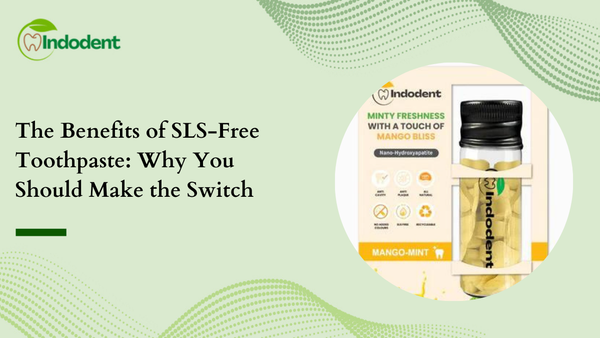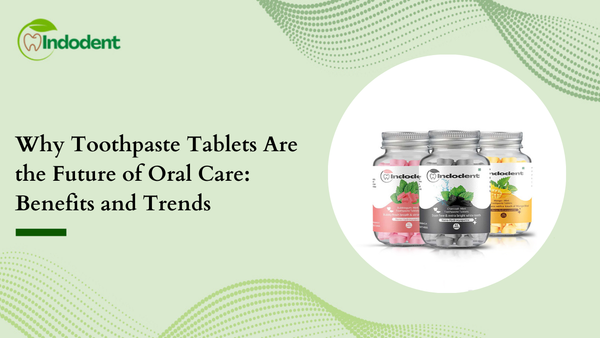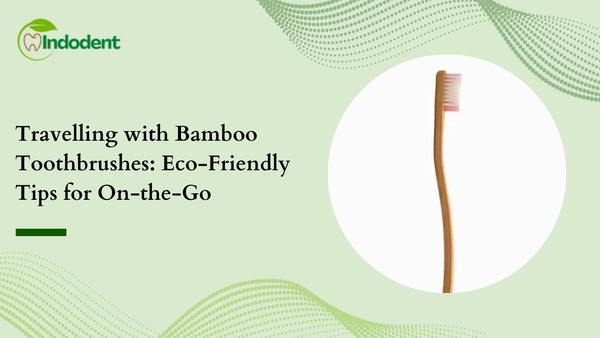
Common Oral Care Mistakes and How to Avoid Them

Many people tend to disregard oral care because they think it will resolve on its own and that they should focus on other health concerns. Generally, all other health examinations are frequently scheduled, except for dentist appointments. Our daily products also play a part in our poor oral hygiene. There are many attractive things on the market, and we often buy them because the packaging or the advertisement draws us in without really understanding what is in it. This is significantly more critical for children, as maintaining oral care is essential for healthy teeth for their developing years.
Oral Care: Avoid These Common Mistakes
- Brushing Too Hard
Many people think brushing harder will result in cleaner teeth, but this can damage your gums and enamel over time. Use a soft-bristled toothbrush and gentle, circular motions to clean your teeth effectively without causing harm.
- Not Brushing for Long Enough
Rushing through your brushing routine can leave plaque and bacteria behind. Aim to brush for at least two minutes, ensuring you reach all surfaces of your teeth.
- Neglecting Your Tongue
Your tongue has bacteria that can contribute to bad breath and oral health issues. Remember to gently brush or use a tongue scraper to clean your tongue as part of your oral care routine.
- Forgetting to Floss
Flossing removes plaque and food particles from between your teeth, where your toothbrush can't reach. Make flossing a daily habit to maintain healthy gums and prevent cavities.
- Using the Wrong Toothbrush
Using a toothbrush with hard bristles or a worn-out head can be ineffective and damaging to your teeth and gums. Choose a soft-bristled toothbrush and replace it every three to four months or sooner if the bristles become frayed.
- Skipping Regular Dental Check-ups
Regular dental check-ups are essential for detecting oral health issues early and preventing more severe problems. Schedule appointments with your dentist every six months for a professional cleaning and examination.
- Not Using Mouthwash
Mouthwash can help kill bacteria, freshen breath, and reach areas of the mouth that brushing and flossing may miss. Incorporate mouthwash into your oral care routine for comprehensive cleaning and protection against cavities and gum disease.
- Overusing Whitening Products
While whitening products can help brighten your smile, overusing them can lead to enamel damage and tooth sensitivity. Follow the recommended usage instructions and consult your dentist before starting whitening treatment.
Consequences of Poor Oral Care
Neglecting proper oral care can significantly affect your dental health and overall well-being. Here are some of the potential risks associated with poor oral hygiene:
- Tooth Decay:
When plaque, a sticky film of bacteria, builds up on the teeth, it can produce acids that erode tooth enamel and lead to cavities. Untreated cavities can cause pain, infection, and tooth loss if left unchecked.
- Gum Disease:
Failure to remove plaque and tartar from the gumline can cause inflammation and infection of the gums, known as gingivitis. If untreated, gingivitis can progress to periodontitis, a more severe form of gum disease that can damage the gums and supporting bone structure, leading to tooth loss.
- Bad Breath:
Poor oral care can result in the buildup of bacteria and food particles in the mouth, leading to unpleasant breath odour. Chronic bad breath can be embarrassing and may indicate underlying oral health issues.
- Tooth Sensitivity:
Exposure of the tooth roots due to gum recession or enamel erosion can cause tooth sensitivity to hot, cold, sweet, or acidic foods and beverages. This sensitivity can make eating and drinking uncomfortable and affect your quality of life.
- Tooth Discoloration and Staining:
Consumption of certain foods, beverages, and tobacco products, along with inadequate oral care, can cause tooth discoloration and staining over time. Yellow or brown stains on the teeth can detract from your smile's appearance and may require professional whitening treatments to remove.
- Dental Abscesses:
Untreated cavities or gum infections can progress to painful dental abscesses and pus-filled swellings that form at the tooth's root or gum tissue. Dental abscesses can cause severe pain, swelling, and fever and may require emergency dental treatment to prevent complications.
- Systemic Health Problems:
Poor oral health has been linked to an increased risk of various systemic health problems, including cardiovascular disease, diabetes, respiratory infections, and adverse pregnancy outcomes. Bacteria from the mouth can enter the bloodstream and contribute to inflammation and infection in other body parts.
Final Words
By avoiding these common oral care mistakes and following our additional tips for optimal oral health, you can maintain a bright, healthy smile and prevent dental problems in the long run. Always prioritize consistency in your oral care routine and seek professional dental care when needed. You can enjoy a lifetime of excellent oral health and a beautiful smile with proper care and attention.



